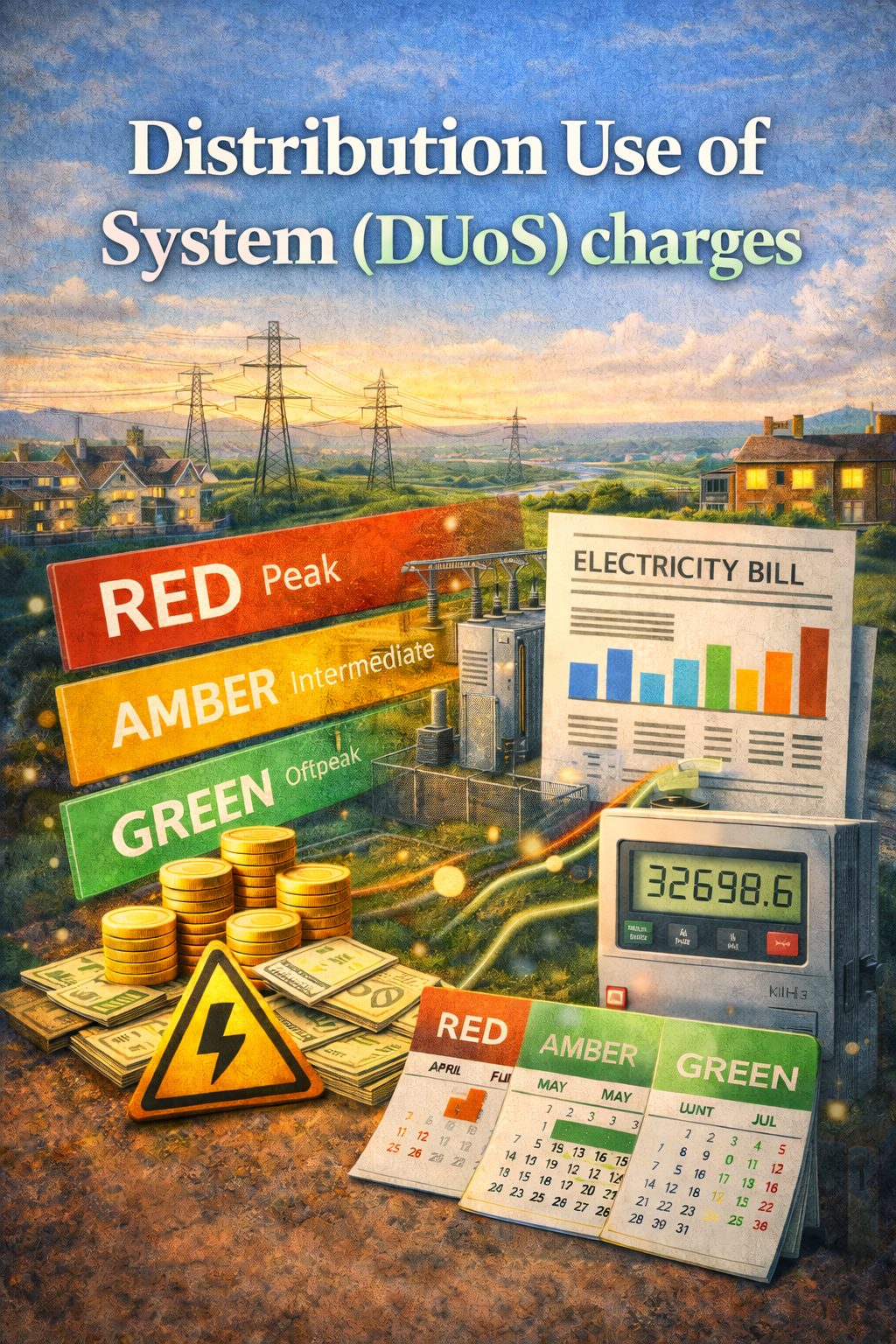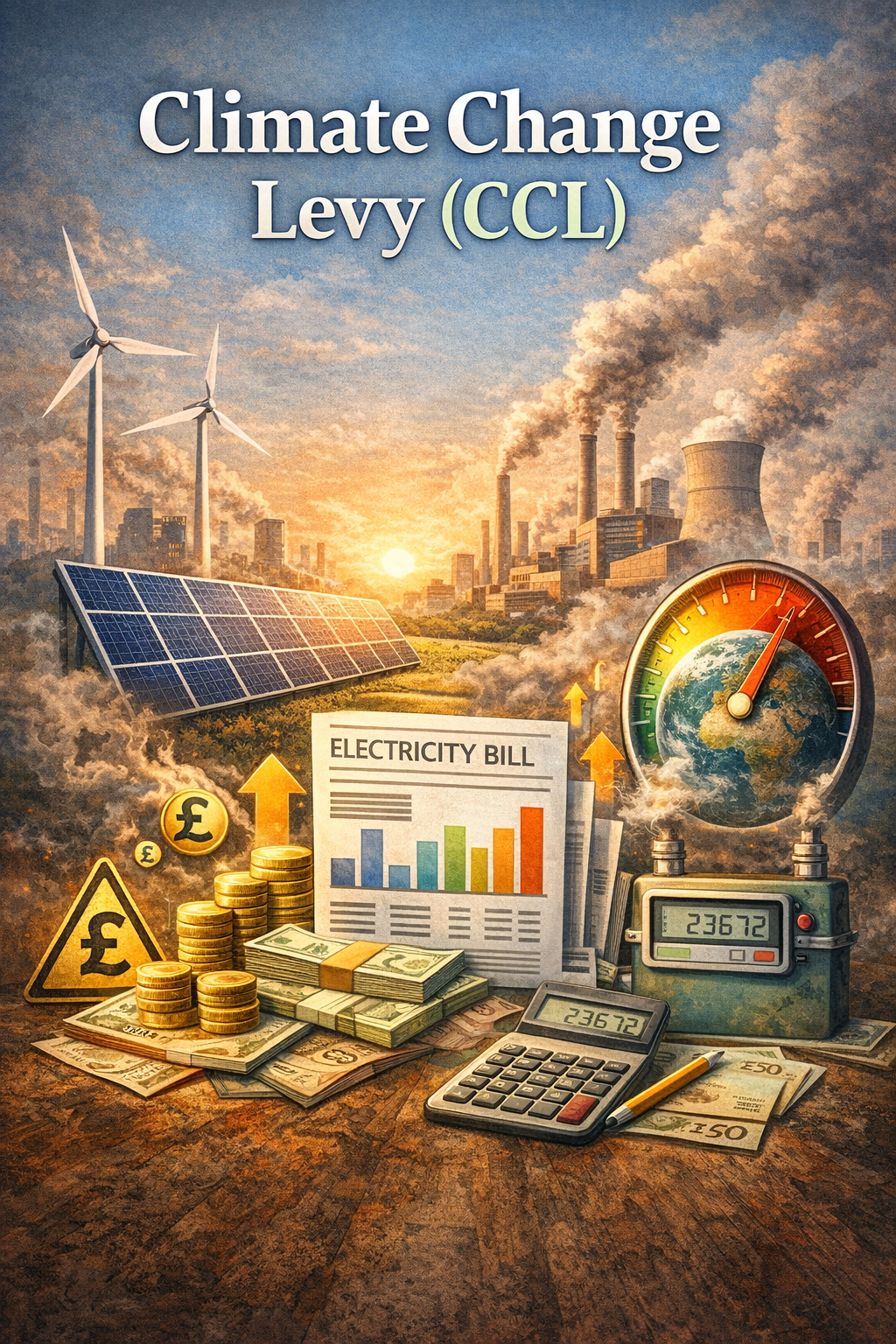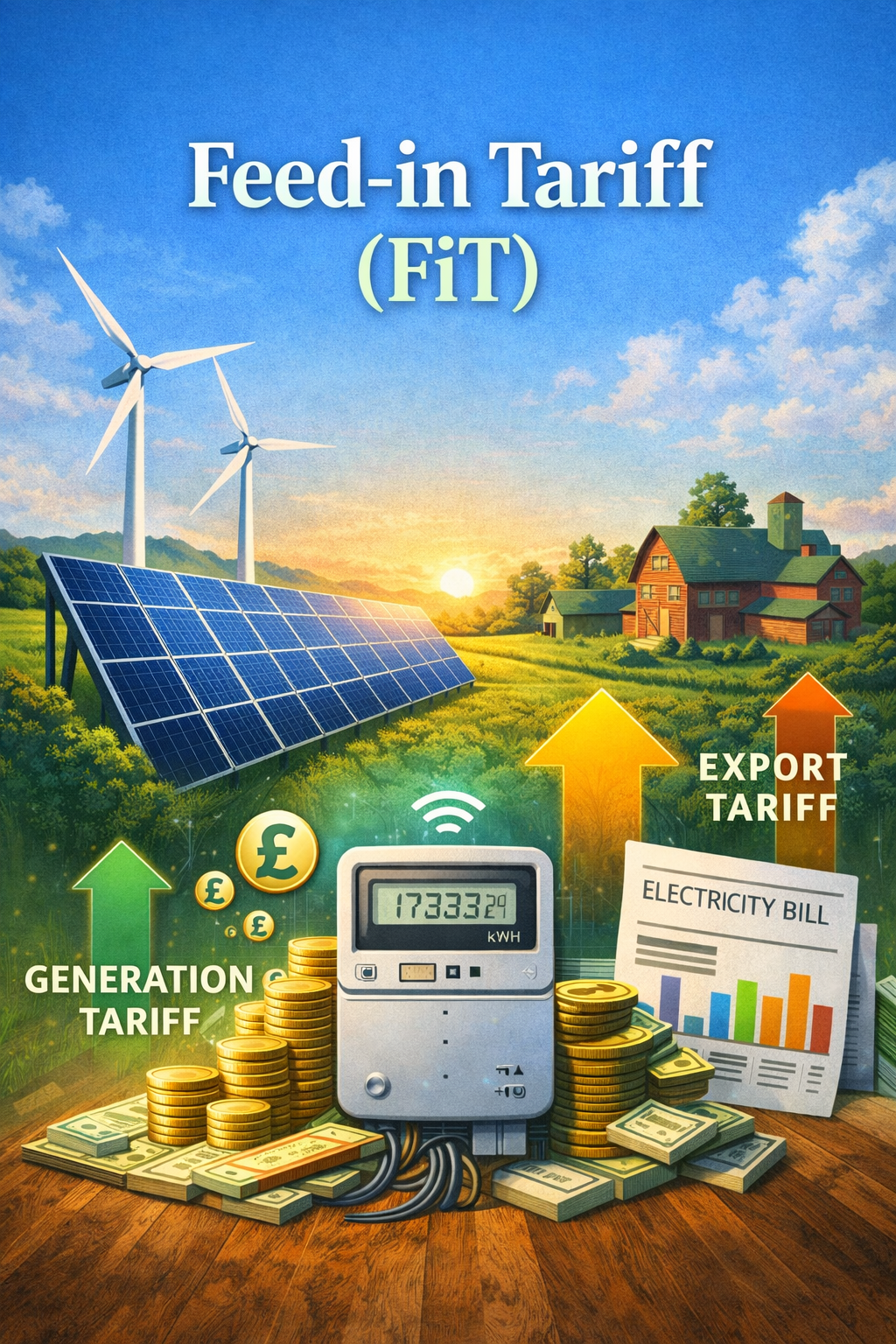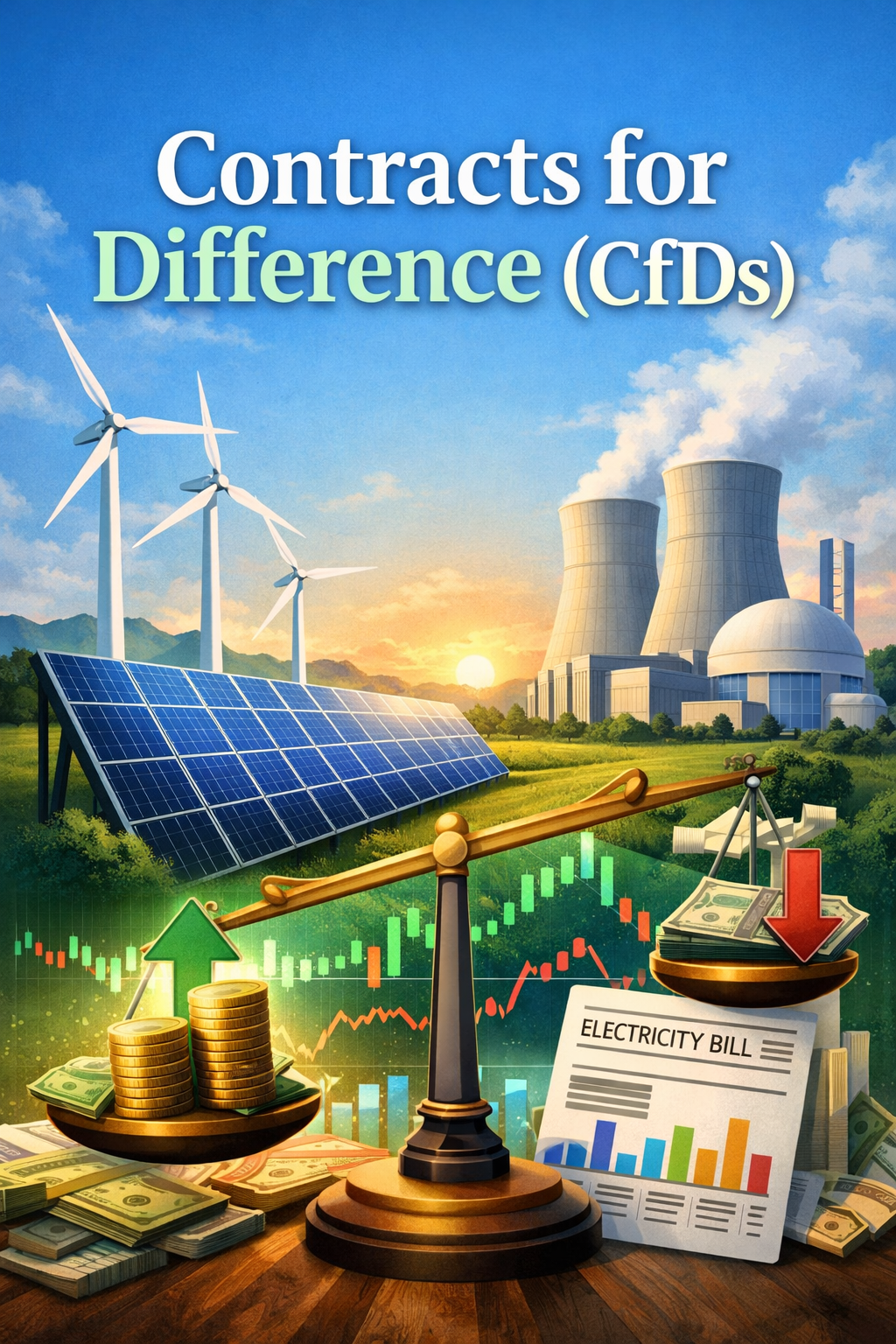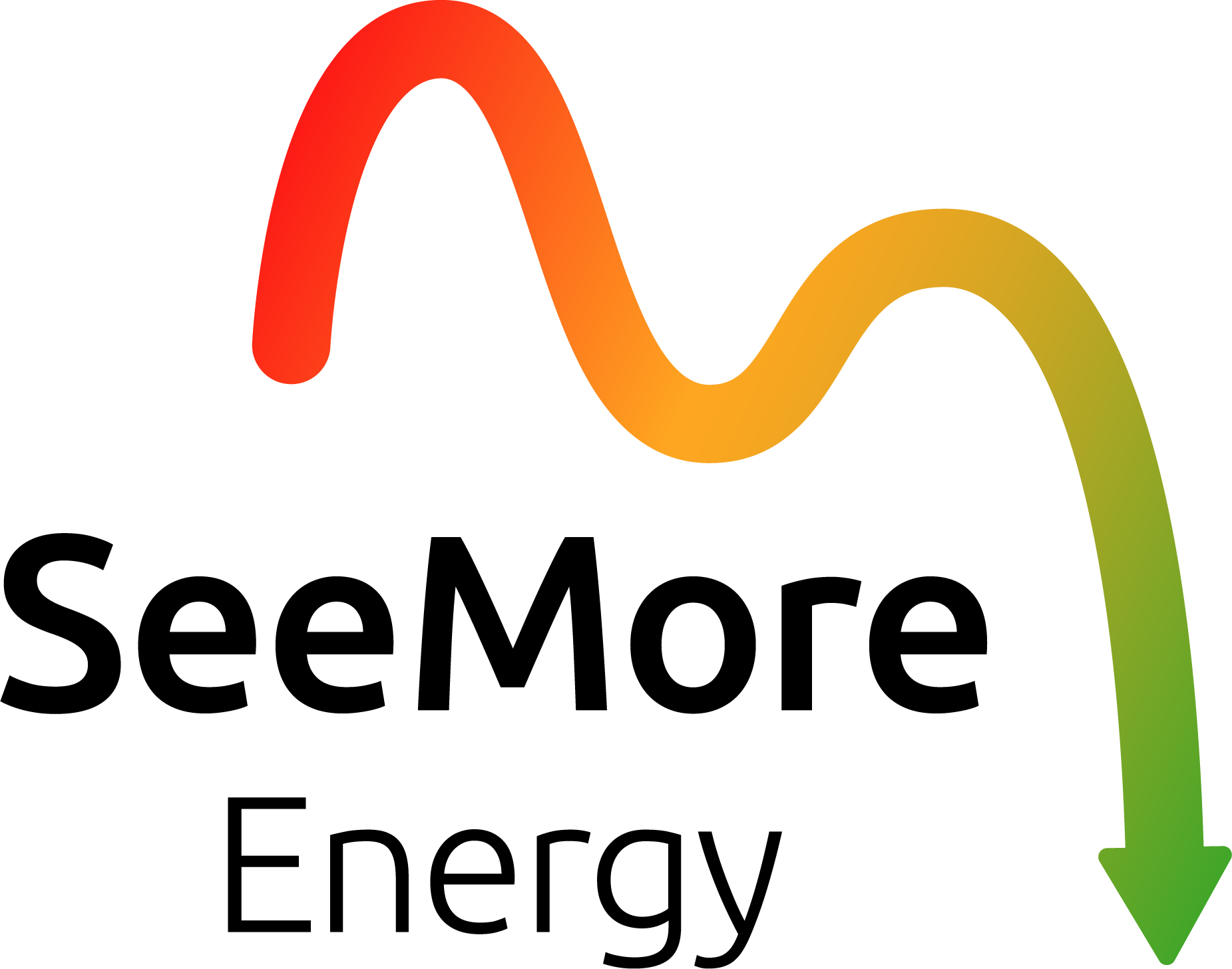How CCL charges have changed
The Climate Change Levy (CCL) -- a tax on business energy use to encourage environmental responsibility -- is seeing an increase in rates for gas and solid fuels starting April 1, 2024. This is designed to help with the government's goal of achieving net zero emissions by 2050.
What is the CCL?
The CCL is an environmental tax added to the electricity and gas bills of businesses and public sector organizations. It incentivises reduced greenhouse gas emissions and improved energy efficiency.
There are two main CCL rates:
- Main Rate: Applies to all businesses in relevant sectors and varies depending on energy usage.
- Carbon Price Support Rate: Applies to electricity generators and combined heat and power station operators (not changing in 2024).
What's Changing?
- Main Rate Increase: The CCL rate for gas is rising from 0.672 pence per kilowatt-hour (p/kWh) to 0.775 p/kWh, matching the existing rate for electricity. This increase aims to create a level playing field between these energy sources and encourage businesses to be more efficient with both.
- Solid Fuel Rate Increase: The rate for other solid fuels is also rising proportionally to gas.
- Discount Rate Adjustments: Businesses participating in Climate Change Agreements (CCAs) receive discounts on the CCL in exchange for meeting energy efficiency targets. These discounts are being adjusted to reflect the main rate increase, ensuring CCA participants don't pay more tax.
- LPG Rate Frozen: The CCL rate for Liquefied Petroleum Gas (LPG) remains unchanged.
Impact on Businesses
This CCL change will lead to higher energy bills for businesses that rely on gas and solid fuels. To mitigate the financial impact, businesses can explore options such as:
- Energy Efficiency Audits: Identify areas of energy overuse and implement efficiency measures like LED lighting or improved insulation.
- Renewable Energy Solutions: Consider switching to renewable energy sources like solar panels to reduce reliance on taxed fuels.
- Ensuring they have the most competitive rates: By comparing all rates available or using a broker to negotiate on their behalf, businesses can make sure they are not over-paying on their unit rates.
The CCL is intended to be a nudge towards environmental responsibility, encouraging businesses to adopt cleaner energy practices. By taking steps to improve energy efficiency, businesses can not only reduce their environmental footprint but also potentially offset the financial impact of the CCL increase.
If your business requires advice on how to lower energy bills or create a reduction in carbon emissions, contact us today to see how SeeMore Energy can help you.
Contact Us

